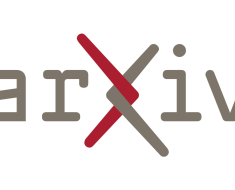
artificial intelligence
Today, despite the widespread artificial intelligence (AI) phenomenon across the country, 33% of US adults report that they have never heard of ChatGPIT, according to a Prosper Insights & Analytics survey.
Prosper – Heard of ChatGBT
I had the pleasure of meeting Dr. Michelle Zhou, CEO and co-founder of Juji, a cognitive AI startup, and a distinguished member of the ACM, and past editor-in-chief of ACM Transactions on Interactive Intelligent Systems. Our discussion touched on the complexities of AI, including cognitive AI, the benefits of integrating it into different work streams across industries, and how important it is for society to use AI responsibly as it continues to evolve.
Gary Drenik: How does cognitive AI differentiate itself from generative AI?
Dr. Michelle Zhou: The AI landscape is constantly evolving, with new advancements being made every day. Recently, recent conversations have focused on cognitive ai, While Generative AI primarily focuses on teaching language skills to machines, Cognitive AI educates machines with advanced human soft skills such as active listening, reading between the lines, and problem solving. Cognitive AI enables machines to become true human companions.
The future of AI is a world with cognitive AI agents similar to Samantha in the movie His Rather, there is a much more sympathetic and responsible “her”. Those “hers” can automate high-touch, high-value services like never before, helping humans make informed and important life decisions based on their individual needs and characteristics. For example, your partner will know you better than you know yourself, including your passions, interests, and talents by interacting with you and analyzing your communication behavior to guide you in planning a career change that best suits your interests. And will be better matched with talents. Beyond what generic AI is doing.
Drenik: Can you share examples of application of cognitive AI agents in various industries highlighting its impact and importance?
Zhou: I’d be happy to. Cognitive AI has been adopted by many industries, especially those that provide essential human services or human welfare services, such as education, human resources, and healthcare sectors.
Specifically, in the education sector, the University of Arizona uses Chatbot, a cognitive AI agent, to connect with prospective students and guide them to locate programs that suit their interests and strengths, which can be described by the chatbot during conversation. was diagnosed.
In the HR field, cognitive AI agents can be used to interview potential candidates and references alike and analyze their personality traits during interviews to assess the fit of candidates and job roles or references ( For example, how fair and truthful the references are). For example, my company, Juji, used AI in our internship recruiting process, and the results were phenomenal. Not only have we reduced the first round of application review process from 2 weeks to 2.5 hours, but the AI agent has also helped us find more diverse and better-matched candidates. Although humans are still and perhaps always will be the ultimate decision makers in the talent selection process, cognitive AI agents can act as strategic assistants to facilitate human decision making and make the process more inclusive, effective and efficient.
Ultimately, the healthcare sector can use cognitive AI agents to increase patient engagement, which in turn helps improve patient experience and outcomes. For example, LooperRoom, a mental wellness company, adopted a Juzi cognitive AI agent to go beyond answering patients’ questions about their recent diagnosis or treatment options and instead participate in empathetic conversations and Helps patients monitor and maintain their mental well-being. In general, through their interactions with patients, cognitive AI agents can infer the personality of each patient and deliver medical information or care instructions tailored to the patient’s background and personality, thereby providing understandable care instructions to the patient. And they become easier to follow.
Drenik: In light of President Biden’s Executive Order on AI, which emphasizes the need for responsible deployment and use of AI, can you share examples of how your company is actively following the guidance?
Zhou: Generative AI is far from perfect, and it hallucinates from time to time by generating incorrect responses. As a measure to protect the public, the executive order requires any generative AI applications to clearly inform users about AI-generated responses. This is necessary as more and more American adults are using AI chatbots in a variety of applications. For example, 22% of adults who use ChatGPT use it for educational initiatives.
Samridhi – Use ChatGPT for Education
According to a recent Prosper Insights & Analytics survey, 14.5% of adults use AI chatbots for banking and financial tasks, and 12.5% of adults use AI chatbots for healthcare matters during the same time period. Long before the existence of the executive order, Juji has put up guardrails around AI-generated responses by telling users whether AI-delivered content is retrieved from human curated data, generated from proprietary data, or publicly available. The data is generated from (for example, GPT). Additionally, Juji provides auditing capabilities to human AI supervisors to audit AI-generated content before and during interactions and make amendments to such content as needed to improve the quality and authenticity of AI responses.
Prosperous – Prefer to communicate with AI chat program
Drenik: What areas do you expect to benefit most from the integration of cognitive AI agents into workflows?
Zhou: As mentioned earlier, industries that provide essential human services, such as the education and healthcare sectors, have benefited from the adoption of cognitive AI agents and will continue to reap significant benefits of AI in the future. This is because essential human services are generally high-touch and high-value services that are very difficult to scale without the help of powerful AI, such as cognitive AI agents.
Integrating AI into the workflow of any high-touch services not only helps in enhancing such services but also increases customer and employee satisfaction through human-AI-human collaboration. While end users can afford 24×7 hyper-personalized “concierge” services, employees can devote their time to more meaningful tasks in the workflow.
Drenik: As the field of AI continues to evolve, what proactive steps can individuals take to stay at the forefront of these advancements?
Zhou: AI will be here to live and evolve with mankind. In fact, according to a recent Prosper Insights & Analytics survey, 17% of American adults are not at all worried about AI developments being harmful to society. As individuals, it is extremely important to empower ourselves with the necessary skills to master AI and become an AI supervisor. This includes learning how to incorporate AI into everyday workflows and various AI supervision skills. Similar to computer skills, having AI supervision skills means teaching, refining, and managing an AI to do what you want the AI to do and accomplish your goals.
Prosper – How concerned I am about recent developments in AI




